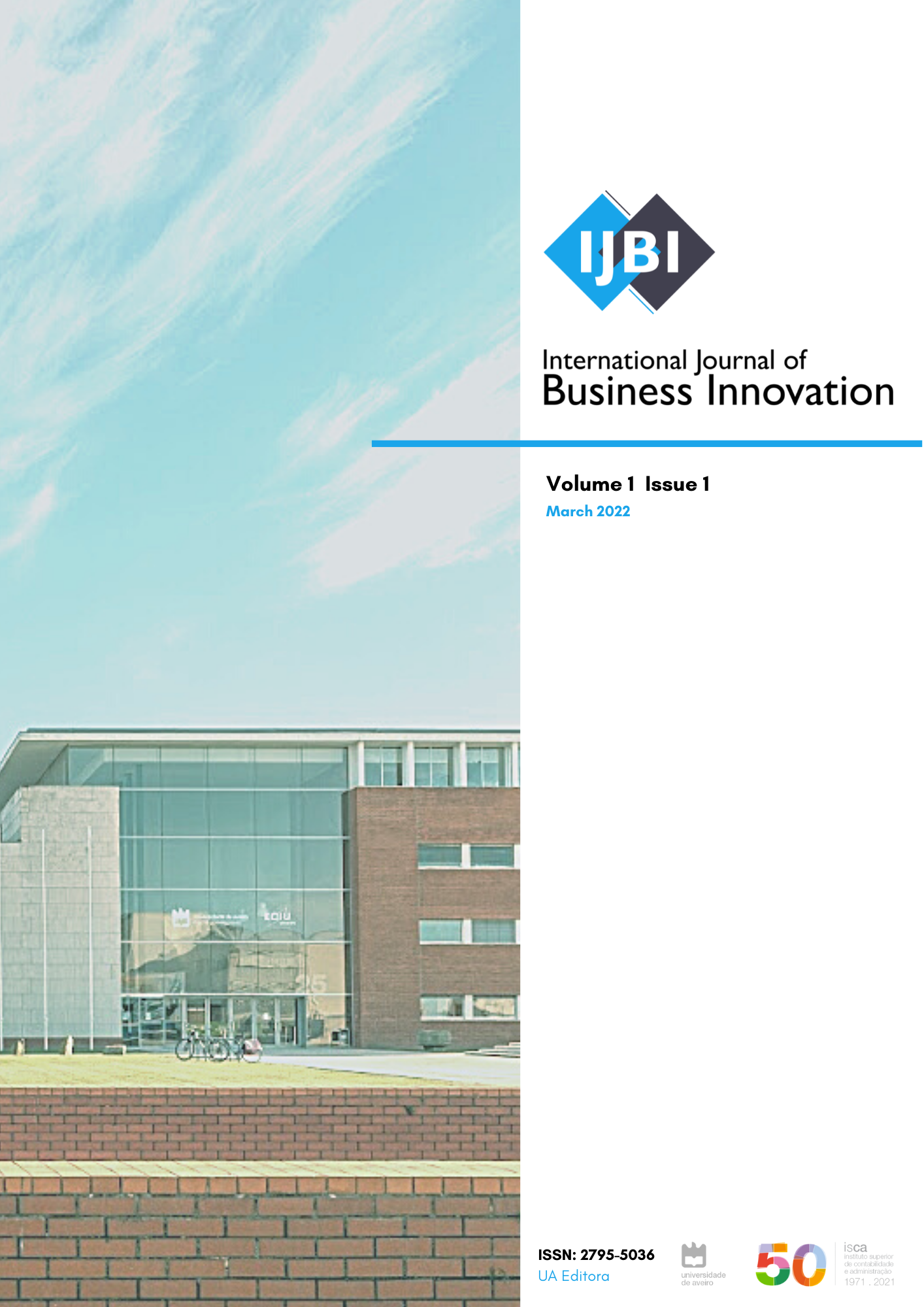Editorial
DOI:
https://doi.org/10.34624/ijbi.v1i1.28237Keywords:
EditorialAbstract
It is with great pleasure that we present the first issue of IJBI - International Journal of Business Innovation. This is a journal that emerges from ISCA-UA, a business school of the University of Aveiro (Portugal) with the objective of providing comprehensive coverage and understanding of various ways of business innovation and its implications for organizational competitiveness and modernization.
Considering the importance of the relationship between research and scientific dissemination, and the need to transfer scientific knowledge to the community, the IJBI arose precisely with the purpose of making known to the international community and of expanding the knowledge on this topic, helping researchers and practitioners to develop suitable strategies, tactics, and operational policies for enabling innovative organizational management.
The IJBI is an open-access peer-reviewed journal quarterly published, where articles are published that fit into the themes of the journal, after being subjected to a double-blinded peer-review process.
For this first issue five articles were selected for publication.
The article “A systematic and bibliometric review of the audit quality in the public sector” by Marco Maggiorani, provides a theoretical picture about the audit quality in the public sector in the last thirty years. This articles is a relevant contribution because the audit quality has been mainly studied in the private sector.
Oluwatosin Adenitan and Mishelle Doorasamy present the paper “Ethical Judgment of Undergraduate Accounting Students at a South African University”, which, using a survey, studied the ethical judgment in South Africa, by providing insights into how the attendance of a business ethics course, gender and race influence the decision-making process of undergraduate accounting students when faced with ethical dilemmas.
In the current context of increasing interest of the governments in emerging economies to reform their public accounting systems, Rui Salato, Patrícia Gomes and Carlos Ferreira present a literature review on the adoption and implementation of accrual accounting in the public sector in their paper “Transition to accrual accounting in the public sector of emerging economies”.
The article “The Implications of Industry 4.0 for the Auditing Profession” by Maria Tavares, Lindiwe Zimba and Graça Azevedo, analyze the impact of the new technologies of Industry 4.0 in the Auditing profession, concluding that the digital transformation and the use of the new technologies provided by Industry 4.0, besides serving as an aid to management and to auditing, do not replace the human, in his social, sentimental, and thought relations.
Finally, in the article “Integrated Innovation as a Pathway to Organizational Performance”, Ademola Samuel Sajuyigbe studied, using a survey, the association among technology innovation, social innovation, business innovation, and organizational performance.
We would like to express our sincere thanks to all those who have chosen IJBI to publish their articles and have sent us their manuscripts, many of which could not be included, without detriment to their quality and interest. Furthermore, we also thank to the reviewers who agreed to collaborate with us in the important task of evaluating the articles received. Concluding, we believe that you have before you a relevant contribution for the dissemination of knowledge in this area in permanent evolution.
Thank you for your interest in the IJBI.
References
Downloads
Published
Issue
Section
License
When submitting an article to the IJBI, authors certify the following clauses:
-
Originality and single submission– The contents presented in the article have not been published previously in whole or in part, and were not submitted or are not under active consideration elsewhere prior IJBI decision. The article must be authentic and does not contain plagiarism.
-
Authorship– All authors reviewed the article, agreed with its content, and agreed to its submission to the IJBI.
-
Conflicts of interest– Any conflict of interests must be declared. If authors have no declaration, it should be written (in the acknowledgments section): “The authors declare no conflict of interests”.
-
Ethics committee and informed consent(if applicable) – The research must be approved by an independent ethics committee and subjects gave their informed consent before they were enrolled in the study.
- Authors retain copyright and grant the journal the right of first publication with the work simultaneously licensed under a Creative Commons CC BY 4.0.



